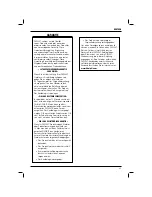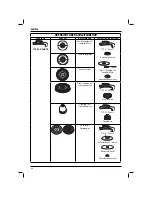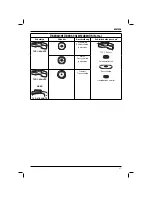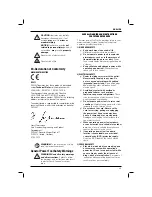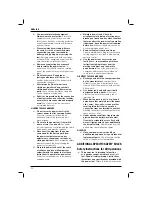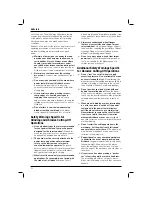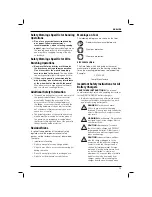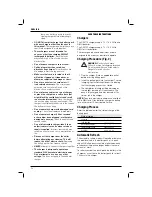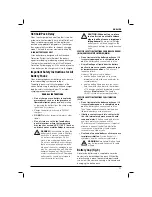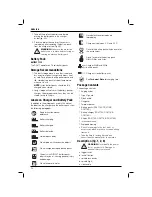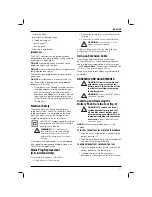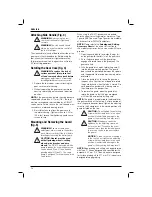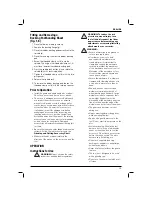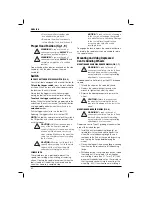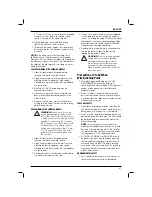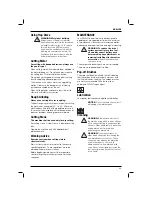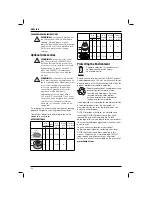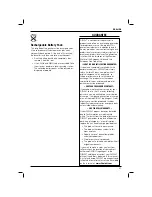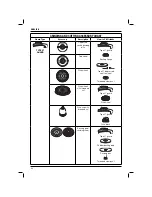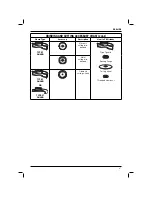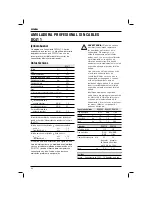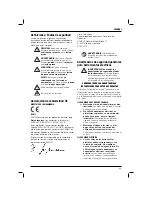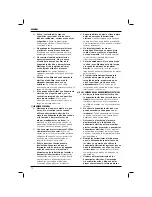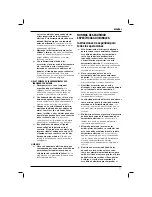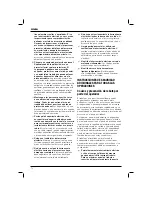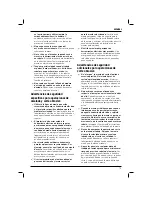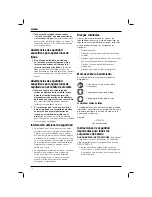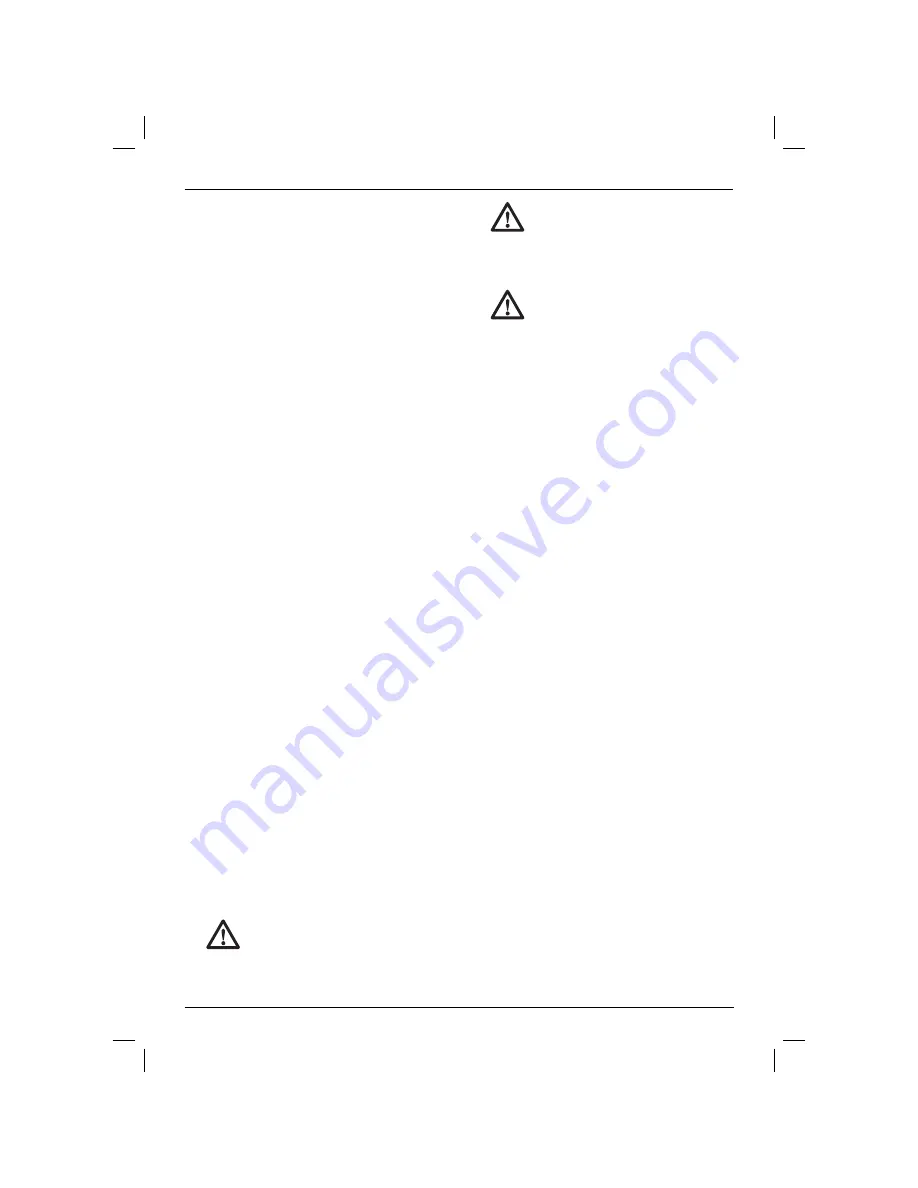
ENGLISH
59
Fitting and Removing a
Backing Pad/Sanding Sheet
(fi g. 1, 8)
1. Place the tool on a table, guard up.
2. Remove the backing flange (g).
3. Place the rubber backing pad correctly onto the
spindle (d).
4. Place the sanding sheet on the rubber backing
pad.
5. Screw the threaded clamp nut (h) onto the
spindle. The ring on the threaded clamp nut (h)
must face towards the rubber backing pad.
6. Press the spindle lock button (c) and rotate the
spindle (d) until it locks in position.
7. Tighten the threaded clamp nut (h) with the two-
pin spanner.
8. Release the spindle lock
9. To remove the rubber backing pad, loosen the
threaded clamp nut (h) wih the two-pin spanner.
Prior to Operation
• Install the guard and appropriate disc or wheel.
Do not use excessively worn discs or wheels.
• Do not use a damaged accessory. Before each
use inspect the accessory such as abrasive
wheels for chips and cracks, backing pad for
cracks, tear or excess wear, wire brush for loose
or cracked wires. If power tool or accessory
is dropped, inspect for damage or install an
undamaged accessory. After inspecting and
installing an accessory, position yourself and
bystanders away from the plane of the rotating
accessory and run the power tool at maximum
no-load speed for one minute. Damaged
accessories will normally break apart during this
test time.
• Be sure the inner and outer flange are mounted
correctly. Follow the instructions given in the
Grinding and Cutting Accessory Chart
.
• Make sure the disc or wheel rotates in the
direction of the arrows on the accessory and the
tool.
OPERATION
Instructions for Use
WARNING:
Always observe the safety
instructions and applicable regulations.
WARNING: To reduce the risk
of serious personal injury, turn
tool off and disconnect tool from
power source before making any
adjustments or removing/installing
attachments or accessories.
WARNING:
•
Ensure all materials to be ground or
cut are secured in place.
•
Use clamps or a vice to hold
and support the workpiece to a
stable platform. It is important to
clamp and support the workpiece
securely to prevent the movement
of the workpiece and loss of control.
Movement of the workpiece or loss
of control may create a hazard and
cause personal injury.
•
Secure the workpiece. A workpiece
clamped with clamping devices or in
a vice is held more secure than by
hand.
•
Support panels or any oversized
workpiece to minimize the risk of
wheel pinching and kickback. Large
workpieces tend to sag under their
own weight. Supports must be
placed under the workpiece near the
line of cut and near the edge of the
workpiece on both sides of the wheel.
•
The gear case becomes very hot
during use.
•
Always wear regular working gloves
while operating this tool.
•
Apply only a gentle pressure to the
tool. Do not exert side pressure on the
disc.
•
Avoid overloading. Should the tool
become hot, let it run a few minutes
under no load condition to cool the
accessory. Do not touch accessories
before they have cooled. The discs
become very hot during use.
•
Do not use separate reducing
bushings or adapters to adapt large
hole abrasive wheels.
•
Never use the tool without the guard
in place.
•
The tool is not designed to be used
with a grinding cup.
•
Do not use the power tool with a cut-
off stand.

